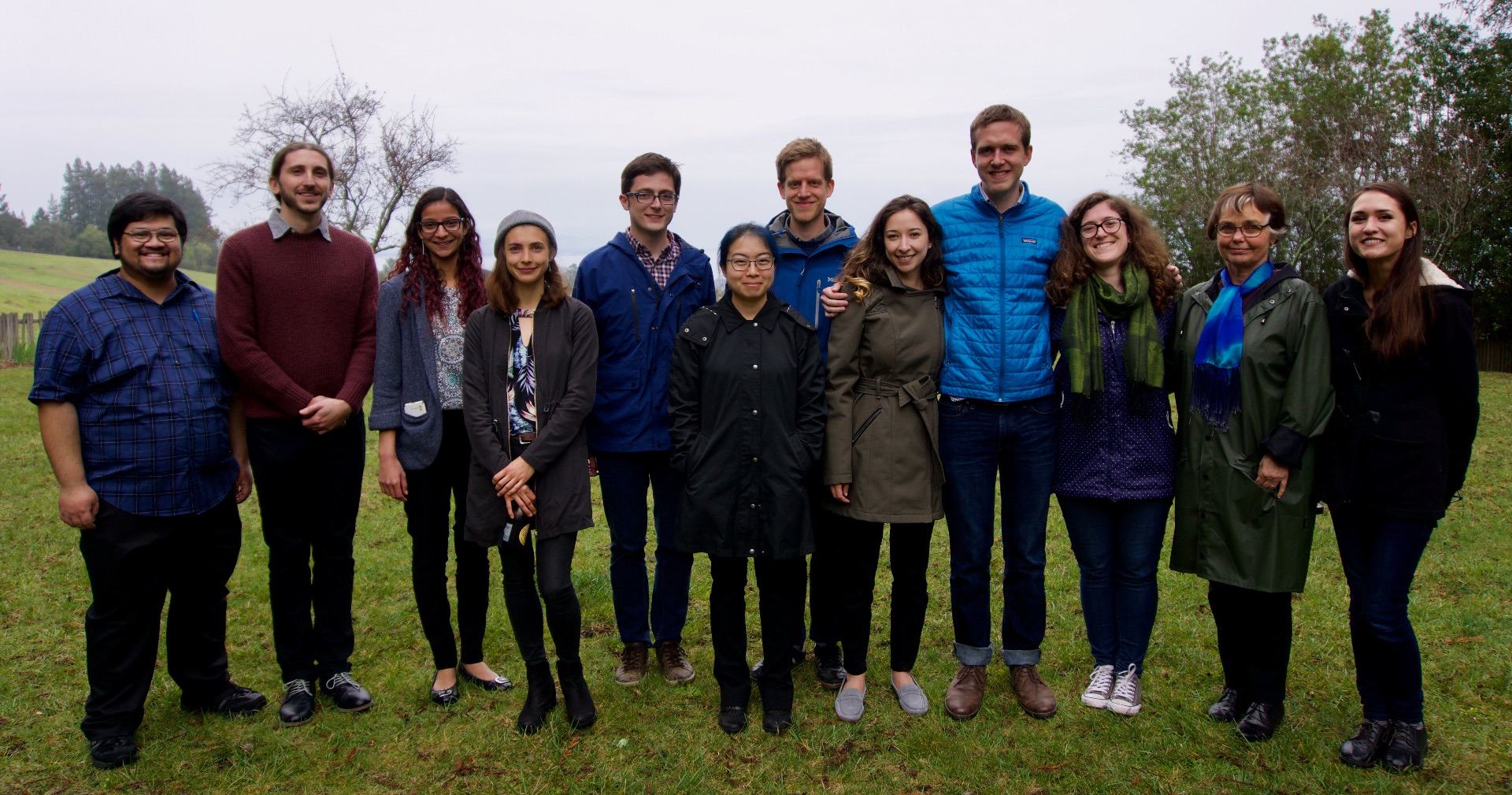On Saturday, March 10th, the department hosted Linguistics at Santa Cruz (LASC), which was a resounding success. The conference featured talks spanning linguistic topics of all shapes and sizes, and languages both near and far. A day of talks and posters by second- and third-year graduate students was rounded out by distinguished UCSC alumnus Peter Svenonius’s talk on the topic of “The syntactic word”. With a healthy appetite for food and merrymaking, the participants ended the day feasting and celebrating at the Cowell Provost House. Thanks to everyone who helped make LASC happen–in particular, co-grad directors Matt Wagers and Maziar Toosarvandani, research seminar leader Donka Farkas, linguistics department staff Ashley Hardisty, Maria Zimmer, and Logan Roberts, and all the presenters.
A very special thanks is due to 4th year graduate student Jed Pizarro-Guevara, for making sure that everyone was properly fed, housed, and transported.
We also extend our gratitude to Hitomi Hirayama, this year’s LASC paparazzo, who provided us with the following photo of the LASC presenters:

Left to right: Andrew Angeles, Jake Vincent, Mansi Desai, Lisa Hofmann, Nick Van Handel, Kelsey Sasaki, Andrew Hedding, Anissa Zaitsu, Tom Roberts, Netta Ben-Meir, Donka Farkas, Lydia Werthen
SaveSave
SaveSave
